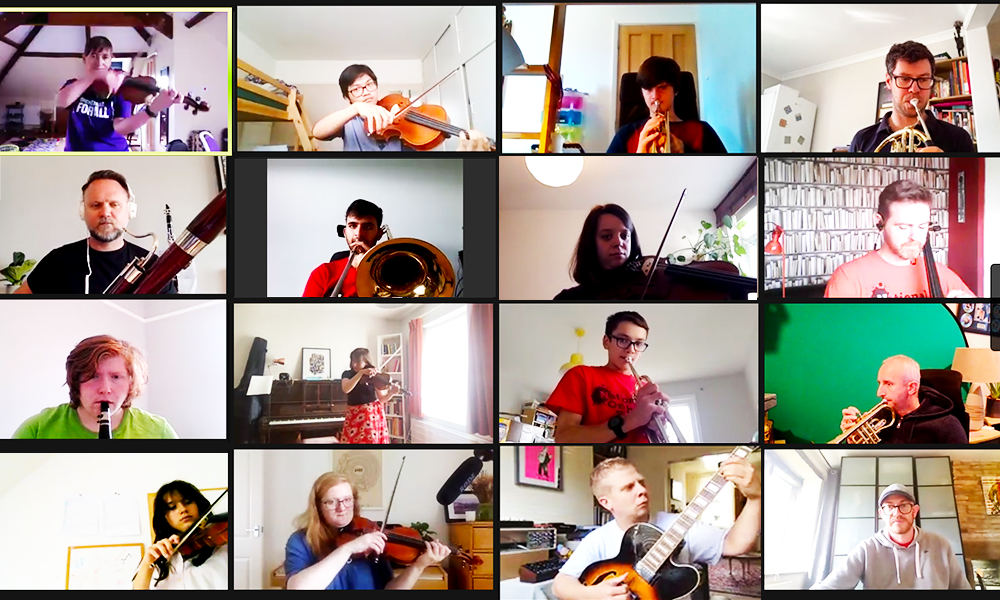“I think it’s important for us to understand why we do the things that we do, in order to make it better for the young people around us.”
Orchestras for All (OFA) is delighted to announce that leading saxophonist, author, speaker and music education consultant, Professor Nate Holder, will be hosting the launch of its live webinar series for 2021-2022.
The series, which commences on 7 December, forms part of Music Leadership Training (MLT) – the charity’s continuing professional development (CPD) programme, specially designed to equip music teachers and leaders with the tools and skills they need to set up and run inclusive ensembles in under-resourced schools and community groups.
With thousands of music educators across the UK still facing significant challenges as a direct result of the coronavirus pandemic, the need to provide support and improve access to music-making is growing.
Nate, who is currently serving as International Chair of Music Education at the Royal Northern College of Music, is perhaps best known for penning several children’s books – including I Wish I Didn’t Quit: Music Lessons (2018) and Where Are All The Black Female Composers (2020).
Ahead of the event, Nate said: “I’m really happy to be doing a session in association with Orchestras for All, called ‘Music educators: why do we do what we do?’. That’s a question I ask myself often.
“Why do I do what I do? Why do I do it in the way that I do it? I think it’s important for us as we’re learning and growing in 2021 to understand why we do the things that we do, in order to make it better for the young people around us.”
Pictured: Professor Nate Holder
To address this topic, Nate’s live Zoom session will be exploring key topics such as whiteness in music education, diversity versus decolonisation and how relationships form an integral part of a music educator’s practise.
He said: “The focus of this session is really going to look at our practises and try to attempt to break down certain misconceptions and broaden our horizons, so that the young people that we work with can feel the benefit of a more inclusive and diverse education.
“Of course, this is just one session and one session won’t fix everything, but I think it’s important to start somewhere.”
Alongside his expert insights, attendees will be encouraged to interact during the event and share their personal experiences in music education, with the key aim of making the industry a better and safer place for all.
Learn more about Music Leadership Training >
To complement OFA’s webinar series, 10 online modules are also available as part of MLT – providing flexible, hands-on training through short videos filmed in real life contexts and in partnership with leading practitioners.
As well as covering traditional conducting techniques, the course invites users to reflect on approaches to group composing, learning music by ear, teaching music without notation and arranging music for inclusive ensembles.
Conductor Sian Edwards shares her expertise with participants during a Music Leadership Training session
In 2020-2021, a total of 190 participants enjoyed virtual and face-to-face sessions. Tor, a music teacher and recent MLT participant, said: “It was all so, so useful! I came away with new techniques for conducting in 2/4, which will be invaluable. The bit where Sian [Edwards] focused on my piece was also immensely helpful – very personalised and inspiring.
“This was exactly what I needed to keep my spark about ensembles during a tough time for music at schools. It has given me renewed energy for getting our groups back again as soon as possible. I am inspired to do more conducting training because of this, so thank you to Sian and Orchestras for All for arranging the training.”
While OFA’s forthcoming webinar series is free to attend, participants are invited to donate what they can to help the charity continue its life-changing work.
Music educators: why do we do what we do? will be available to livestream via Zoom on Tuesday, 7 December 2021 at 17:30 GMT.






























